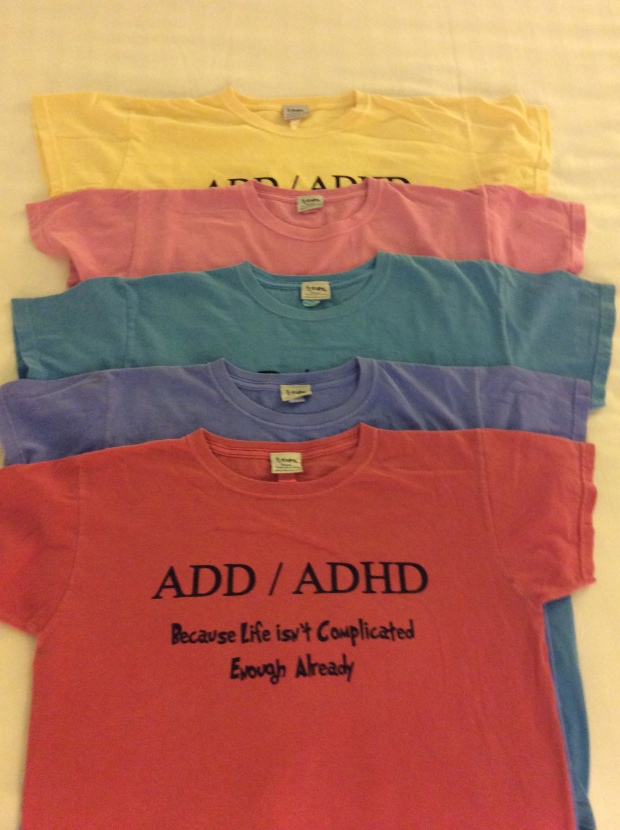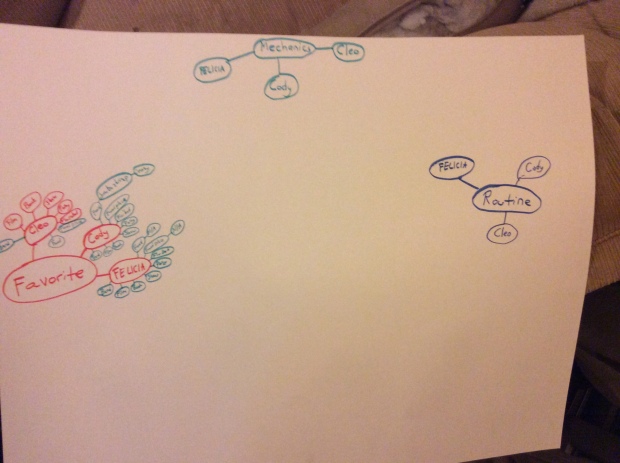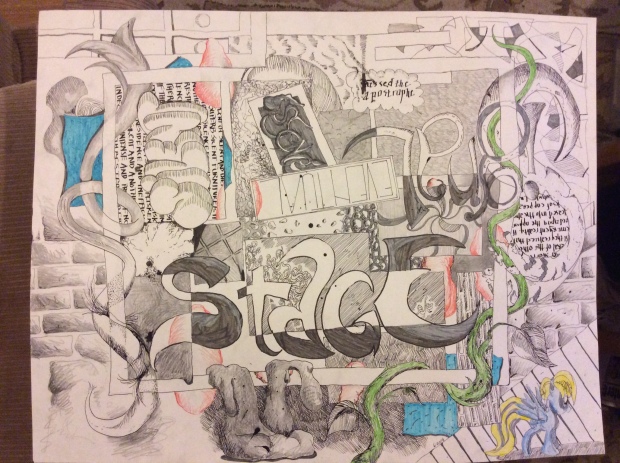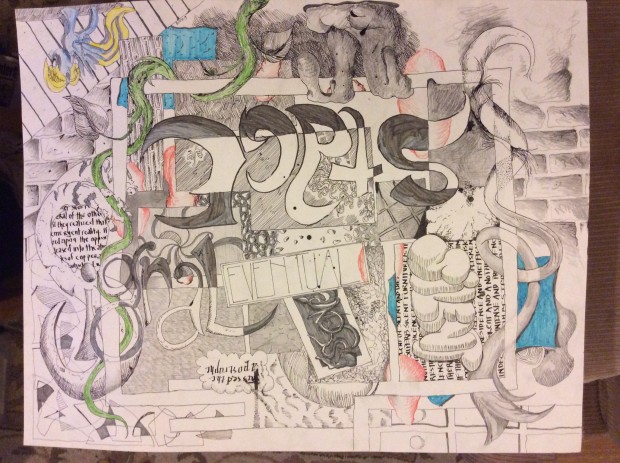Rick’s Keynote address was titled “Friendly Fire – How ADHD Advocates Undermine Each Other, The Need to Find Common Cause Amongst Our Many Voices”. I was very interested in this because I am formulating exactly how I understand ADHD. Is it a disability? Is it a gift? Is it a cognitive style?
(I’ve even been playing with the concept that we have it backwards. The real disability is NOT having ADHD. Being trapped in a life that is all about repetition, predictability, and organization. Where security is King, where curiosity is a problem and creativity is a waste of time. Where spending an extra 8 hours at the office is a virtue but clocking out right at 5 so you can go play guitar with your friends is “self-indulgent”.
I’m not suggesting that’s the answer, just giving you a peek into my head.)
Rick made reference to a long-anticipated “summit” some years back at a CHADD conference. Russell Barkley and Ned Hallowell would be sitting opposite each other to talk about their view of ADHD. Now, if you don’t know these names, I’ll give you a quick (and much too broad) introduction: Russell talks about ADHD as a problem, Ned talks about it as a gift.
The audience was expecting a knock-down, drag-out fight between opposing viewpoints. But they didn’t get it. What they got instead was a well-considered discussion between two men who knew that they were talking about the same thing from different points of view.
Rick went on to talk about how the problem of Knowing complicates discussion and can impede progress when dealing with complicated subjects. Taking hard-line positions and defending them to the death leads to competition, belittling and insulting of the other, and keeps us from exploring new areas and possibilities. (OK, that’s my spin on what he said, but I think it’s pretty close.)
This all made sense to me because it’s the same way I’ve learned to understand religions and philosophical systems. If we want to be honest about it, we are trying to describe the unknown and unknowable in language that is finite, that is culturally and historically proscribed and that is limited by human intellect.
Making the religious analogy also helped me understand why neither the “disability ” nor the “gift” model works for me, but the “cognitive style” language does. Now, I do know that both Barkley and Hallowell understand the limits of their language – it’s not just a disability or just a gift – but I find it helpful to use the language that works best for me. So, just as I think of religious systems as being “more or less spiritual” or “more or less ritualistic”, I think of mental styles as “more or less concerned with details” and “more or less concerned with the big picture”.
There are a lot of other things tied in with these categories and they don’t nearly do justice to the pain and frustration ADHD can cause – or the the excitement and creativity often connected with ADHD – but that’s not my point. My point is to recognize that these categories are approximations and that they exist on a spectrum.
My spectrum is pretty broad, but then I’m working in broad strokes. I want people’s relationships to move in the direction of “better”, I’m not convinced I can get them to “good”, but I can help them move in the right direction. And I don’t care what words we use to talk about that. I’m not going to get tied up in “Knowing” and “Competing” and “Taking Positions”. I don’t think they’re helpful. And neither does Rick Green.
So, I guess I’m in the right place.



